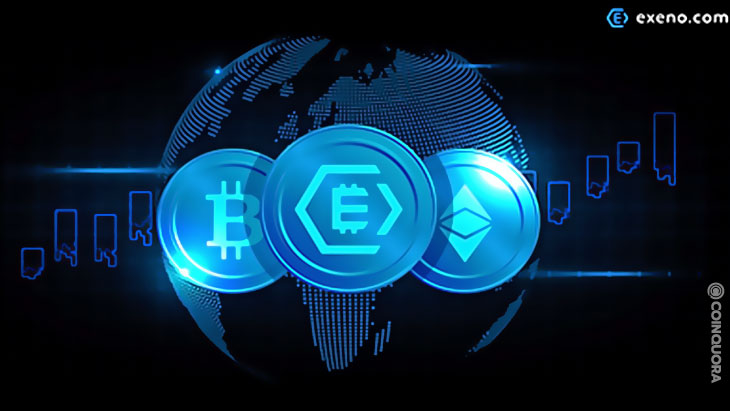- Crypto can be utilized to have financial freedom.
- Enterprises like AT&T, Shopify, and Home Depot have integrated crypto payment schemes.
- Many companies have proven success in building blockchain projects with real-world use cases.
The digital world has been taken over by a new storm — cryptocurrency. It’s seemingly a peek into the future of fintech, one that’s here to stay. Why? Because it’s already around us, creating endless opportunities for financial freedom, more so than anyone realizes.
Many forward-thinking organizations are making headway by integrating crypto into their business models, so they continue to lead the pack. In doing so, the opportunities for crypto users to buy, sell, and invest have grown formidably. Here’s a surface-scratcher of what the world of cryptocurrency offers.
E-commerce Innovates Further
Virtual currency demands virtual purchases. Many companies with established e-commerce sites have integrated crypto into their payment schemes, such as AT&T, Shopify, and Home Depot, and the list goes down.
As of today, 58% of the crypto population are millennials and Gen Z. Theglobal luxury market seeks to hit approximately$1.5 trillion by 2025. Roughly 50% of this target audience are millennials. As both millennials and Gen Z consumers drive 85% of global luxury sales growth, the move to integrate crypto becomes even more important. So far, luxury brands, such as Patek Philippe, Hublot, Tesla, and even high-end travel agent travala.com, have begun to accept crypto as a payment mechanism.
A New Development: Crypto-Commerce
Crypto-commerce is basically e-commerce, except the platform accepts crypto as payment for the tangible goods sold.
Websites like exeno.com that sell technological goods, as well as household, beauty, and other products have begun to focus more on the crypto journey. These platforms have moved from e-commerce to c-commerce (crypto commerce) by transforming their marketplace into one that will soon facilitate the trading of NFTs. Some have also introduced their own cryptocurrency, similar to exeno.com’s exeno coin.
They’ve even taken this to the next level by looking at introducing loyalty programs (stake back), so the entire experience feels like one that we are already familiar with — cashback, but with crypto. With the launch of the coin, exeno is moving toward offering a comprehensive affiliate program built specifically for the crypto commerce industry. The coin is still in its exclusive pre-sale stage.
FinTech Applications Stay Relevant
Since leading e-commerce platforms are taking up crypto into their channels, payment systems are staying relevant too.PayPal and Venmo take the lead in integrating crypto into their platforms, introducing checkout with crypto. This has given millions of users of paying via crypto on any of the merchants that have them as a financial partner.Cash App is another platform that allows users within the UK and US to transfer money to each other using the app. It has now integrated crypto into its platform to allow the purchase of bitcoin through the app.
One Step Further: Decentralized Finance
While the above shows how crypto is integrated into traditional payment platforms, DeFi (decentralized finance) takes this concept further. As observed, more and more companies have disrupted the traditional finance world by creating apps that focus on blockchain. DeFi is just the beginning of the increase in financial inclusion. The more popular it becomes, the more access and control each person will have over their finances. It’s open to anyone, doesn’t require a tedious onboarding process, and you’re able to control your money and how it goes to your peers.
To elaborate, DeFi enables users to:
● Send and stream money around the globe
● Access stable currencies
● Borrow funds with and without collateral
● Start crypto savings
● Trade tokens
● Buy insurance, and more
Investment Opportunities
Crypto doesn’t just have to be a mode of payment. Rather it is also bridging investment opportunities. NFTs (non-fungible tokens) are digital assets representing real-world objects like art, music, in-game items, and more that can be purchased through crypto. These are incredibly limited items, and thus holding onto certain NFTs means that some have the potential to increase in value over time. Crypto users and businesses have the ability to create, buy and sell NFTs to keep the currency flowing. Other NFTs go beyond art, acting as access passes to conferences and events or even accessing products.
Apart from investing in NFTs, there are additional investment opportunities, such as investing in dollar-pegged stablecoins (hedging against other denominated assets and currencies), investing in actual businesses that have Initial Coin Offerings, buying synthetic assets (such as gold and other commodities), and even the purchase of physicalreal estate and online real estate! These are ways that the physical and the digital world intersect, bridged by crypto.
Conclusion
As we can see, the finance world is quickly evolving with the rise in organizations embracing cryptocurrencies, knowing that they need to start making this a reality so that they can still lead the pack. The opportunities are endless, opening up new doors in purchasing and investing in tangible goods through these digital assets.
Whether it be through e-commerce, c-commerce, investment opportunities, or financial applications, the world of crypto-possibilities is growing faster than we can keep up, so it’s up to each one of us to grow with it before we get left behind.


